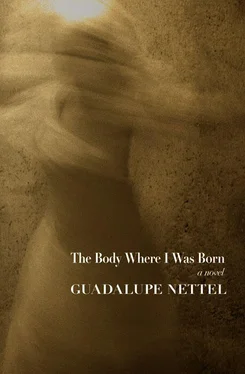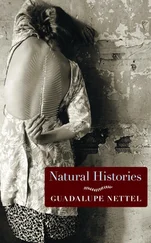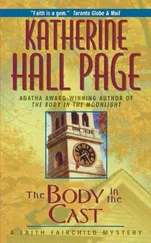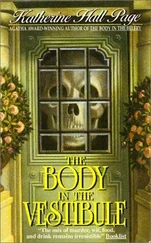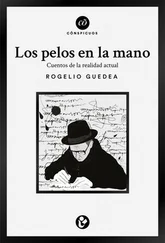At about halfway through all this training, an important event took place in our structured family life: one afternoon, not long before summer vacation, my mother brought Lucas into the world, a blond and chubby boy, who took up most of her attention and who was able to distract her from her corrective agenda, for a few months at least. I will not talk too much about my brother. It is not my intention to tell or interpret his story, just as it does not interest me to tell or interpret anyone’s story but my own. Still, unfortunately for him and for my parents, a good part of his life intertwines with mine. Even so, I want to be clear that the origin of this tale lies in the need to understand certain events and certain dynamics that formed this complex amalgam — this mosaic of images, memories, and emotions — that breathes within me, remembers with me, entwines others, and takes refuge in a pencil the way others take refuge in drinking or gambling.
One summer, Dr. Pentley finally announced that we could stop the daily use of the patch. According to him, my optic nerve had developed to its maximum potential. All that was left was to wait until I had finished growing and they would be able to operate on me. Even though nearly thirty years have passed since then, I haven’t forgotten that moment. It was a fresh morning full of sun. My parents, brother, and I walked out of the clinic hand-in-hand. There was a park nearby where we went in search of ice cream, like the normal family we would be — at least we dreamed we would be — from that point on. We could congratulate ourselves; our resistance had won us the battle.
Of the good times I had with my family, I remember in particular the weekends we spent together at our country house in the state of Morelos, one hour outside Mexico City. My father had bought the land just after my brother was born and built the house my mother designed with the help of a prestigious architect. Carried away by who knows what romantic fantasies, they also built a barn and horse stable. But the only animals we ended up having were a German Shepherd and a good number of hens that kept themselves busy laying eggs. As much as I pleaded, I never convinced my parents to buy lambs or ponies. Our relationship with Betty, our weekend dog, was as loving as it was distant. We never felt the responsibility to train her, to take her out for walks, or to feed her, so even though she was affectionate with us, her canine loyalty belonged to the gardener. Behind the farmhouse ran a clear stream where we’d swim and use plastic bags to catch tadpoles and axolotls, those mysterious animals Cortázar might have mythologized in a short story. My brother and I would spend more than five hours a day in the water, wearing rubber boots and bathing suits. Now, thirty years later, it is impossible to swim in that stream; it’s filled with excrement and toxic residue. One of the wonderful things about that house was the abundance of fruit trees, especially mango trees, lemon trees, and avocado trees. When we’d return to the city, we often brought boxes of avocados in the car to sell to our neighbors. My brother and I were in charge of this job, and it was how we scraped together a decent savings to be squandered over the holidays.
Around that time — I must have been starting third grade — I started to develop a reading habit. I began reading a few years before, but now that I had unlimited access to the clear universe — to which belonged the words and pictures of children’s books — I decided to take advantage of it. I mostly read short stories, but also a few longer books by the likes of Wilde and Stevenson. I preferred suspense or scary stories, The Picture of Dorian Gray or The Bottle Imp. I often read the equally or even more terrifying stories in my father’s book of Bible legends. There was Princess Salome who beheaded the man she so desired, there was Daniel thrown into the lion’s den. Writing was the natural next step. In my lined notebooks, the French kind, I wrote down tales in which my classmates were protagonists who went to faraway lands where every kind of calamity befell them. Those stories were my opportunity for revenge, and I was not going to waste it. It wasn’t long before the teacher caught on and, moved by some strange solidarity, decided to organize a literary assembly where I could express myself. I refused to read unless I knew beforehand that an adult would stay by my side until my parents came to pick me up that afternoon, since it was very possible that more than one of my classmates would be looking to settle a score after class. As it happened, things turned out differently than I expected. After reading a story in which six of my classmates tragically died trying to escape from an Egyptian pyramid, there was enthusiastic applause. Those who had been featured in the story smugly came up to congratulate me, and those who had not been featured begged me to make them characters in my next tale. That was how, little by little, I earned my particular place at school. I had not stopped being marginalized, but it wasn’t oppressive anymore.
It was the seventies, and my family had embraced some of the prevailing progressive ideas of the time. I went to one of the few Montessori schools in Mexico City (today there’s one on every corner). I know that in those days there were institutions where kids could literally do whatever they felt like. They could set their classrooms on fire and not go to jail or suffer any severe punishment. In my school, we had neither absolute freedom nor stifling discipline. There were no blackboards, no desk chairs set up to face the teacher who, naturally, did not answer to that name, but to “guide.” Each kid worked at a real table — a desk that was all ours, at least for a year — on which we were allowed to leave distinctive marks, drawings and stickers, so long as we didn’t damage the desks beyond repair. Against the walls were bookcases and shelves where we kept our work supplies: wooden jigsaw puzzles of maps with all the world’s countries and flags; multiplication tables that looked like Scrabble boards; textured letters; bells of various sizes; geometric shapes made out of metal; laminated papers with different parts of the human anatomy and their names, to mention a few. Before we could use anything, we had to ask our guide for instructions. It didn’t really matter what we did during the morning, we just had to work on something, or at least pretend to work. A few times a year there were parties for all the families, and then you could really measure the havoc the seventies had wreaked. Guests at these parties included kids whose parents lived in three-way partnerships or other polygamous situations, and instead of feeling ashamed, they flaunted it. The names of some of my classmates give another eloquent vestige of those years. Some of them reflected ideological leanings, like “Krouchevna,” “Lenin,” and even “Supreme Soviet” (we nicknamed him “the Viet”). Others spoke to religious beliefs, like “Uma” or “Lini,” whose full name honored India’s snake of cosmic energy. Others, still, spoke to more personal devotions, like “Clitoris.” That was the name of a lovely and innocent girl, the daughter of an infrarealist writer, who did not yet comprehend the wrong her parents had done her and who, to her misfortune, didn’t have a nickname.
Among the strange policies my parents imposed was one about never lying to us. This was an absurd decision, from my point of view, which they were able to commit to for years, but only on a handful of not-so-essential fronts, including the way babies are made, the uselessness of religion, and Santa Clause, in whom we were never allowed to believe. Living under these conditions stuck us at the margin of our society; if at some age it’s possible to enjoy the ominous season that comes around at the end of every year — carolers at the supermarket, decorated pine trees in the windows, and everything else that creates the so-called “magic of Christmas”—we were deprived of it. Every time a fat man with a fake beard and the unmistakable red suit appeared in the hallway of a mall we were visiting, my parents would kneel down so they could whisper in our ears that he was an imposter, “a man in a costume with no other way to earn a living.” With these few words, wonderful Santa turned into a pitiful, if not pathetic soul. Our classmates, on the other hand, were allowed to believe in all the paraphernalia and naturally they enjoyed it. They innocently wrote their year-end letters, asking for this or that gift — sometimes extravagant requests their parents would fulfill down to the last detail. Several of these parents approached us after class and begged us not to give away their secret. My brother and I had to bite our tongues, resisting the enormous temptation to disenchant the others. I have to admit that I also felt a certain nostalgia for the illusion. Not being allowed to believe in Christmas stories seemed unfair to me. On the twenty-fifth of December, we would find beneath the tree the presents our parents had told us they’d be putting there during the night. There was, among the most memorable gifts, a red tricycle that I rode until I was five, and a pair of binoculars that inspired a life calling. Our apartment was in a building complex, and our neighbors’ windows offered an almost limitless menu. The magnification of my binoculars wasn’t very powerful, but it was enough to see close-up what went on in our vicinity. I don’t know if it’s what my parents had in mind, but for me the binoculars were a kind of compensation for all the time they had limited my sight with the patch. Thanks to this marvelous instrument, for years I was able to enter the homes of others and to observe things to which nobody else had access.
Читать дальше
